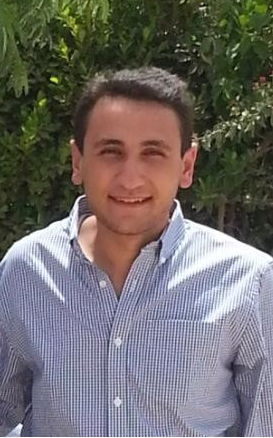News | Perspectives from Fulbright Recipient and USC Engineering Management Graduate Mohamed Hassan
Stop the VideoNews

METRANS UTC
Perspectives from Fulbright Recipient and USC Engineering Management Graduate Mohamed Hassan
Monday, January 21, 2019
by By: Drew Quinn
For five years Mohamed Hassan traveled between Egypt and Qatar as a Junior Field Engineer for Schlumberger: Oilfield Services. Hassan managed the planning, executing, and closing of wireline reservoir characterization projects and others endeavors to manage the quantitative representation of active oil and gas reservoirs, both on- and offshore. In 2017, Hassan left the oil fields of the Middle East to accept a Fulbright Scholarship to attend USC and perform Freight and Sustainability research with Professor and METRANS Director Genevieve Giuliano.

On his work with Professor Giuliano Hassan stated, “I had the opportunity to work with Professor Giuliano on research as part of the California Sustainable Freight Action Plan (CSFAP) in January 2018.” The research, he revealed, centered on developing an economic competitiveness metrics to be used to track the health of the freight sector while implementing new policies to reduce greenhouse gas emissions.
Hassan further explained that CSFAP aims to provide the guide for California’s freight sector to be more efficient, more economically competitive, and less polluting. The plan offers a unified approach for the state’s greenhouse gas (GHG) reduction goals and the development of a sustainable freight system for California. “The main objective of this research is to build on previous work with public agencies and industry groups to establish a set of measures that would accurately depict the competitive state of California’s freight economy and arrive at targets that could be used to evaluate competitiveness over time,” he noted.
When asked about his preparation for this role Hassan recalled his experiences as a Mechatronics Engineering degree student. Specifically, Hassan spoke of his simulation research for pipeline corrosion and detection and his robotics research that led to the development of a demining quadcopter that could create maps using image processing.
Regarding the future, he is interested in joining a management consulting firm where he can apply the knowledge he gained at USC. On the field in general, Hassan noted he is “excited about seeing the transition to zero or almost zero emission transportation means. [Beyond] the economic impact, the transition will definitely push technology and research in this sector.” He added that self-driving trucks should greatly affect the shortage in truck drivers and trucking employment more broadly.
Lastly, Hassan offered advice to current students. “Research is always full of uncertainties and ambiguities,”he said. “There is no paved path in research that will lead you to your findings. You will have to use the available guidance to improvise your own path. You only need passion towards the research subject and a starting point.”
About the Author:
Drew Quinn is a Master of Planning student at the University of Southern California with a concentration in Transportation. Originally from Atlantic City, New Jersey, Mr. Quinn received a B.A. in History from The George Washington University in Washington, DC and has previously lived in Philadelphia and Madrid. Mr. Quinn serves as the Lead Editor for METRANS on the Move and is also the President and Founder of Trees by Trojans, a service organization at USC dedicated to increasing the distribution of green infrastructure in South Central LA.
News Archive
- December (1)
- November (6)
- October (4)
- September (2)
- August (3)
- July (4)
- June (3)
- May (7)
- April (8)
- March (11)
- February (8)
- January (7)
- December (7)
- November (8)
- October (11)
- September (11)
- August (4)
- July (10)
- June (9)
- May (2)
- April (12)
- March (8)
- February (7)
- January (11)
- December (11)
- November (5)
- October (16)
- September (7)
- August (5)
- July (13)
- June (5)
- May (5)
- April (7)
- March (5)
- February (3)
- January (4)
- December (4)
- November (5)
- October (5)
- September (4)
- August (4)
- July (6)
- June (8)
- May (4)
- April (6)
- March (6)
- February (7)
- January (7)
- December (8)
- November (8)
- October (8)
- September (15)
- August (5)
- July (6)
- June (7)
- May (5)
- April (8)
- March (7)
- February (10)
- January (12)















